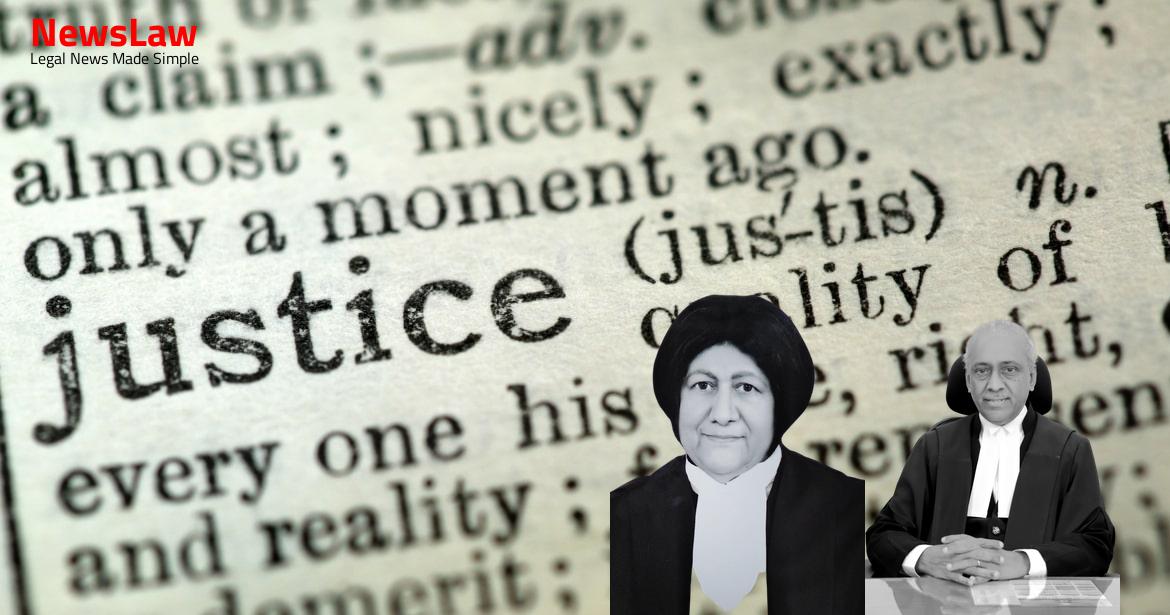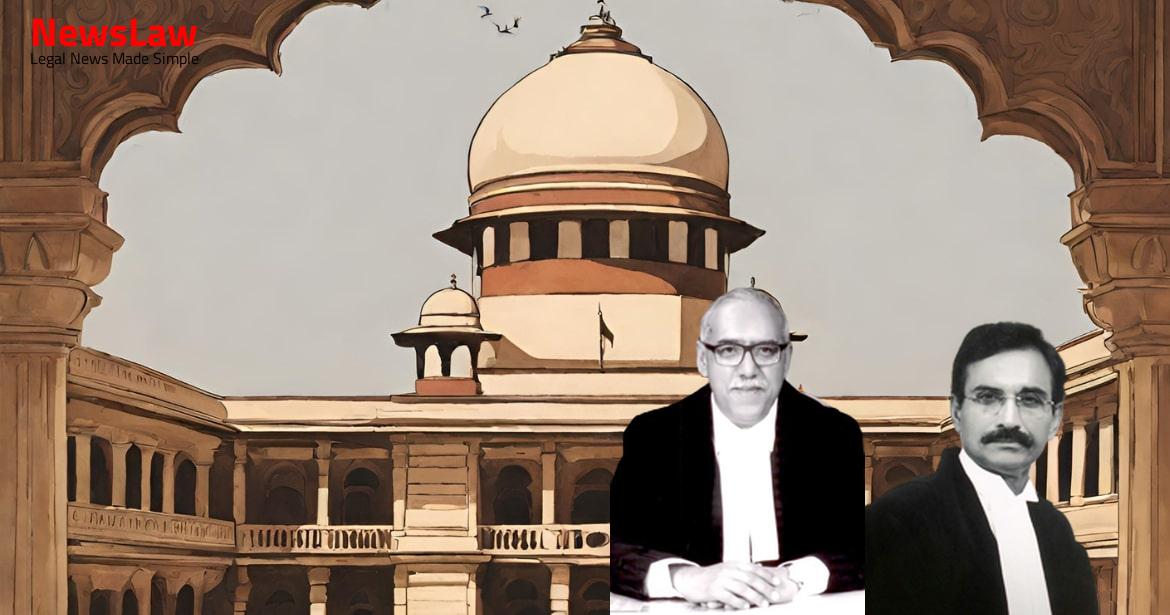Explore the intricate legal analysis pertaining to contempt charges for breach of undertaking in a recent court case. The court’s detailed examination of wilful disobedience, fraud on the justice system, and the consequences of non-compliance with court orders sheds light on the complexities of the legal system and the importance of upholding commitments made to the court.
Facts
- (i) The learned Judge granted suspension of the sentence of imprisonment till 26.07.2017 to allow the petitioners to file an intra-court appeal.
- (ii) The petitioners were found guilty of contempt and sentenced to three months of simple imprisonment with a Rs.2000 fine each on 18.07.2017.
- (iii) The petitioners’ application for exemption from surrendering was dismissed by an order in Chamber dated 31.07.2017.
- (iv) On 03.08.2017, the Division Bench of the High Court rejected the miscellaneous application seeking suspension of the sentence.
- (v) The petitioners then filed a Special Leave Petition and an application for exemption from surrendering challenging the order dated 03.08.2017.
- The petitioners, who were directors of Parul Polymers Private Limited, availed loan facilities from the respondent bank.
- The loan was categorized as a Non-Performing Asset on 24 July, 2014, due to defaults in repayment.
- The petitioners offered to deposit Rs. 7 crores in three installments by 30 June, 2015, as per their statement under oath on 8 April, 2015.
- The petitioners obtained a conditional order of stay from DRT-III on 01 April, 2015, requiring them to deposit Rs. 5 crores within thirty days.
- The petitioners surrendered on 6 November, 2017, after a contempt petition was filed by the respondent-bank for breach of their undertaking.
- The contempt petition was challenged by the petitioners on the grounds that breach of an undertaking made to secure a conditional order of stay may not amount to contempt, but their plea was dismissed by the court.
Also Read: Challenging Conviction: Legal Analysis Spotlight
Arguments
- Failure to comply with an undertaking for a conditional stay order does not necessarily constitute wilful disobedience for contempt
- Non-compliance with an undertaking does not substantially interfere with the due course of justice under Section 13(a) of the Act
- If an order specifies consequences for non-compliance, invoking contempt jurisdiction may not be appropriate
- If the defaulting party interprets the order to imply consequences for non-compliance, it can be considered reasonable and not contemptuous
- The learned counsel for the respondent highlighted the various orders passed by the High Court and in other forums, emphasizing the deceitful conduct of the petitioners.
- Reference was made to the cases of Bank of Baroda vs. Sadruddin Hasan Daya & Anr., Rama Narang vs. Ramesh Narang & Another, and Rama Narang(5) vs. Ramesh Narang and Another to stress that failure to comply with court undertakings is viewed seriously.
- The specific undertaking given by the first petitioner on 08.04.2015 was quoted, indicating the basis for the contempt proceedings.
- The respondent’s counsel argued that despite multiple chances, the petitioners consistently resorted to delaying tactics instead of fulfilling their commitments.
Also Read: Land Dispute: Court’s Analysis on Condonation of Delay
Analysis
- The petitioners issued post-dated cheques dated beyond the agreed payment date and allowed them to be dishonoured, leading to contempt charges.
- The subsequent conduct of the petitioners, including false excuses and involvement in shell entities, convinced the court of fraud.
- The court emphasized that contempt arises from wilful disobedience and fraud on the justice system, not just breach of orders.
- The petitioners’ actions post the undertaking tilting the balance against them, showing lack of good faith and genuine reasons for non-compliance.
- Despite opportunities to settle and mend ways, the petitioners’ behavior added to the contempt charges.
- Distinction between wilful disobedience to a court process and wilful breach of undertaking to court under Section 2(b) of the Act highlighted.
- No distinction to be drawn between wilful violation of consent decree and decree passed on adjudication as per Rama Narang case.
- Decision in Babu Ram Gupta case clarified as obiter by three member Bench in Rama Narang vs Ramesh Narang case.
- The contention that the petitioners should be shown sympathy due to their unsuccessful attempts to save mortgaged properties is acknowledged.
- The petitioners have spent 11 days in custody out of a three-month imprisonment sentence imposed by the High Court.
- The attempt to interpret the order in a way that benefits the petitioners cannot excuse their actions.
- The petitioners were found guilty of contempt, and the High Court’s decision is not to be interfered with under Article 136.
Also Read: Legal Analysis on Waiving Waiting Period in Mutual Divorce Cases
Decision
- The petitioners were found guilty of contempt of court but the period of sentence was reduced to the imprisonment already undergone.
- An amount of Rs. 2 crores was to be paid by 30.04.2015, with the balance in equal installments by 31.05.2015 and 30.06.2015.
- In case of default, the respondent Bank could take further legal action, including appointing a receiver by the Chief Metropolitan Magistrate.
- The possession of the petitioners over the property in question would not be disturbed if they complied with the conditions of depositing the specified amounts by the given dates.
- A total amount of Rs. 7 crores was to be deposited with the respondent Bank by 30.6.2015.
- The second petitioner was required to file an affidavit/undertaking to comply with the deposit arrangements.
- The court granted some deferment in repayment of the loan liability but required strict compliance with the deposit terms.
- The Bank was authorized to initiate legal proceedings in case of default.
Case Title: SUMAN CHADHA Vs. CENTRAL BANK OF INDIA (2021 INSC 386)
Case Number: SLP(C) No.-028592 / 2018



